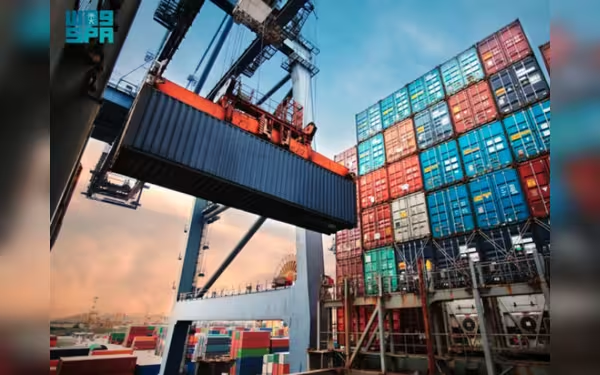Thursday, November 7, 2024 07:37 AM
Pakistan's REER Decline Boosts Export Competitiveness
- Falling REER enhances Pakistan's export attractiveness.
- Lower currency value supports economic growth.
- Caution needed to avoid long-term imbalances.
 Image Credits: tribune.com.pk
Image Credits: tribune.com.pkPakistan's falling REER boosts export competitiveness, offering opportunities for economic growth and job creation.
The Real Effective Exchange Rate (REER) is a crucial indicator for countries like Pakistan, especially when it comes to understanding the dynamics of trade and economic health. The REER measures the value of a country's currency against a basket of other currencies, adjusted for inflation. When the REER falls below 100, it indicates that the currency is undervalued, which can significantly boost a country's export competitiveness. This is particularly important for Pakistan, which often faces a current account deficit, meaning it imports more than it exports.
Recent trends show that Pakistan's REER has indeed fallen, which is good news for local exporters. A lower REER means that Pakistani goods become cheaper for foreign buyers, making them more attractive in international markets. This can lead to an increase in export volumes, which is essential for the country's economic growth. In contrast, when the REER rises above 100, it suggests that the currency is overvalued. This situation makes imports cheaper, which can lead to a drain on the country's foreign exchange reserves, putting additional pressure on the economy.
For instance, if a Pakistani textile manufacturer can sell their products at a lower price due to a favorable REER, they are likely to attract more international buyers. This not only helps the individual business but also contributes to the overall economic stability of the country. Increased exports can lead to job creation, higher income levels, and improved living standards for many citizens.
However, it is essential to approach this situation with caution. While a lower REER can provide immediate benefits, it is crucial for the government and policymakers to ensure that this does not lead to long-term economic imbalances. Sustainable growth should be the goal, and this requires a careful balance between exports and imports. Additionally, the government must work on improving the overall business environment, enhancing productivity, and investing in infrastructure to support exporters.
The recent fall in Pakistan's REER presents a golden opportunity for the country's exporters. By capitalizing on this favorable exchange rate, Pakistan can enhance its export competitiveness and work towards reducing its current account deficit. However, it is vital for stakeholders to remain vigilant and ensure that this advantage translates into sustainable economic growth for the future. The path ahead may be challenging, but with the right strategies in place, Pakistan can navigate these waters successfully.













